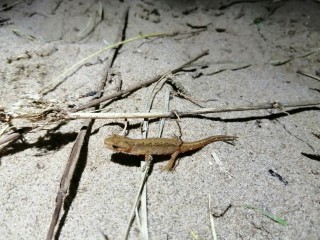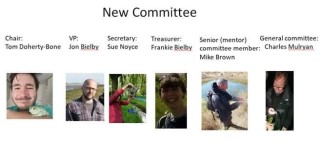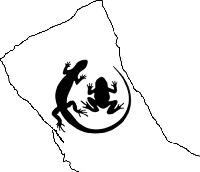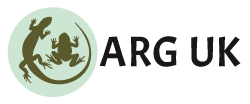About us
About Us
Aim
The aim of this group is to understand and protect the amphibians and reptiles of the Wirral peninsular through organizing training, raising awareness, surveys, habitat management tasks and other conservation activities.
Background
The Wirral Peninsular has historically been habitat of Sand Lizard, Natterjack, Great Crested Newt, Common Frog, Common Toad, Smooth Newt, Palmate Newt, Common Lizard, Slow Worm and Grass Snake. However, developments in the 20th Century has seen species such as the Sand Lizard and Natterjack disappear. Status of other herps have been uncertain, the problem being linked to lack of surveys and recording.
In 2018, preliminary surveys around Wallasey revealed many new and surprising records for amphibians and reptiles. This was part of the Cheshire & Wirral ARG. However, the size of this district with that county was too large, necessitating the formation of a new ARG for Wirral (WiARG) so more surveys and recording can be coordinated across this interesting peninsular.
Founding member and current Chair of WiARG, Tom Doherty-Bone, grew up on the Wirral and was frustrated by the lost herpetofauna species and limited opportunities to view the remaining herps in the area. Formation of this new ARG will create the opportunity for local residents in the Wirral to get involved with amphibian and reptile surveys and recording for both enjoyment of these wonderful animals and to aid in their conservation on the Wirral.
Activities
Since its formation in 2019, WiARG has undertaken numerous surveys and practical conservation tasks across the Wirral. Some of the highlights have been mapping out the extent of Common Lizard in Harrison Park, Wallasey, as well as lizards and amphibians across the North Wirral Coastal Park. Updating the known status of amphibians (including Great Crested Newt) at Royden Park and more recently measuring the use of the tidal zone of amphibians in the north west Wirral coast.
An outline itinerary for 2023-24 can be found under the 'Upcoming surveys' tab, suggestions from members are welcomed.
Existing partnerships include the Wirral Ranger Service, Cheshire Wildlife Trust, the Friends of the North Wirral Coastal Park and Wirral Wildlife.
Committee
The present committee consists of: Thomas Doherty-Bone (chair); Sue Noyce (secretary); Jon Bielby (vice chair); Frankie Bielby (treasurer); Charles Mulryan (general committee); Mike Brown (senior adviser).
Membership
The membership fee for 2023-24 is £5 (£2.50 for under 17s when accompanied by a guardian), which goes toward conservation activities of the group, such as buying equipment. Payment can either be made in cash, bank transfer or through Paypal: https://paypal.me/WiARG?locale.x=en_GB
Membership cycle runs from April to April.
Please get in contact if you wish to get involved.
News
News
Hoylake Beach and beyond for Wirral’s coastal amphibians
In the summer of 2021, the Wirral ARG led a study on the habitat use of amphibians in the north west Wirral coast. This primarily looked at whether amphibians were using areas outside of the Red Rocks Nature Reserve, where it was already known populations of four amphibian species occur: Smooth Newt, Common Frog, Common Toad, and the Natterjack Toad. The study was born out of the long-term consideration of expanding and sustaining the rare Natterjack population on the Wirral. Natterjack had been reintroduced to Red Rocks in the early 00s and was sustaining its population thanks to management of its breeding habitat by the Cheshire Wildlife Trust (the Wirral Parks & Recreation before them). While they were stable there, this was still a small, vulnerable population, with more needed to expand across the Wirral coast.
Back in 2019 when WiARG were turning our attentions to Red Rocks, there was only bare sand, housing, roads and sea walls connecting the dunes there to the dunes at Meols and the Gunsite. We had thought about how the habitat between the two main sand dune sites could be restored so these rare toads could have lots of other breeding populations. In particular, we wanted to work out how to engage with the public to get consent for geoengineering the coast to make this possible. Then came the revelation that the beach at Hoylake was being kept artificially bare, that the council had been spraying and raking vegetation that would have formed coastal habitat. Things then started moving. First of all, the council stopped spraying and raking the beach. Then the coastal vegetation started to grow, and grow, forming green mats of a mixture of saltmarsh and sand dune species. Over a hundred plant species were found to be colonising (or resurrecting within?) the shore over two years. Sadly, despite much positive support for the development, there was a loud chorus of disapproval that made the issue of the vegetational succession highly polarised. This was apparently party politics seizing the opportunity to discredit opponents making the decisions and win over disgruntled voters. Whichever decisions were to be made, a scientific evidence base would be needed.
We therefore took the opportunity to obtain baseline data on the status of amphibians outside of Red Rocks, not just Hoylake but other, adjacent areas. We held back from surveying residential properties to save frightening people who would see us wondering around their gardens at night. Academically, this study has been interesting in understanding how amphibians move along coastal environments – one rule of thumb is that amphibians avoid saline environments or at least do not thrive in them. For example, oceanic islands formed by volcanic activity typically have no amphibians at all as they can’t enter the sea. Natterjack have some tolerance to salt water that can give them the upper hand over Common Toad, but even a high tide can put them off breeding in a pond for a while. One night we found that where amphibians stopped, the crabs started – there was an abundance of Shore Crab on land. This may have been an unusual night as we didn’t see it every time, but was food for thought.
Due to the viciousness of some of the discourse from some members of the public, manifest by abuse directed to other scientists involved with studying the beach, we did our best to keep a low profile. And it seemed to work as we carried on without hassle, with no snide comments from the usual suspects after we posted findings on social media platforms. Afterall we just wanted to do the science, enjoy ourselves meeting amphibians doing interesting things on the coast and send it back to the public for consideration. And we met some lovely amphibians, even the protected Natterjack in abundance, which we had to arrange for licensing to survey from Natural England. Common Toad were mostly found to be spilling over into Hoylake Beach, with one young Natterjack, but none more than 100m. In contrast, we found no amphibians at all in the raked West Kirby beach. The only amphibians in the eastern end of Hoylake Beach were Common Frog (more terrestrial than people realise), and this Spring they were found breeding in a puddle on the beach with the tadpoles still present in early June.

The data from 2021 is being analysed and further surveys to augment the dataset are being planned, at Hoylake, West Kirby and further afield to capture better information on coastal movements of amphibians. A manuscript for publication in a peer-reviewed journal is already drafted with this preliminary data – this is just the start of things, a scientific paper is more a status report than the final story. The story is however pointing to a potential future for when the habitats of Hoylake Beach could act as a corridor for Natterjack and other amphibians to move east toward the other sand dunes of Meols and Leasowe-Wallasey. And that would only be one part of the broader restoration of the living systems of the Wirral that would benefit people as much as the species that will prosper because of them.
What can you do to help? There is a consultation for residents of the Wirral to feedback to the council how the beach at Hoylake should be managed – this might include leaving the beach to continue to develop sand dune & saltmarsh habitat; returning to the former management; a blend of both; or something only you may have thought of. If you want to lend your voice to this, the consultancy ends 10th August, so make sure to make your thoughts known here: https://haveyoursay.wirral.gov.uk/hoylake-beach-information/survey_tools/hoylake-beach
Discover the Wild-side of Central Park Wallasey on the Jubilee Weekend
We will be running a stall by the ponds at Central Park Wallasey during the Jubilee weekend. The stall will be raising awareness of the amphibians & reptiles across Wirral, with special focus on pondlife in the park. We will have some newts, tadpoles (if any about), as well as numerous invertebrates.
This will be in collaboration with RECORD the local biological record centre, who will be introducing park visitors to biological recording via bug hunts, bird spotting and more.
We will be setting up the stall about 08:30 a.m. so if you want to come and volunteer, let us know. Hope to see you then, whether you are helping out or just saying hello and seeing what we can show you. The stall will be up from 9 a.m. till 3 p.m.

WiARG AGM May 2021
Minutes for Wirral ARG AGM Date 25/05/2021
Venue: On Zoom
Committee: Thomas Doherty-Bone (chair), Jon Bielby (secretary), Frances Bielby (treasurer), Mike Brown (mentor)
Other attendees: Sue Noyce, Charles Mulryan
Apologies: none
TDB gave a presentation on the progress and achievement of the Wirral ARG (WiARG) since its launch in March 2019, with plans for 2021-22 laid out. So far there are 18 members. The accounts were presented. The meeting was then opened to the rest of the attendees.
Matters Arising
- New committee members were appointed and voted in: Sue Noyce as secretary; Charles Mulryan as general committee member.
- Both Jon & Frankie Bielby have another child on the way, but rather than step down, Jon has agreed to move to the role of vice president. Frankie is happy to stay on as treasurer in name with TDB to keep handling accounts for the time being, with oversight provided as required on a case by case matter.
- End-
Spawn Reporting 2022
Report spawn sightings to:
https://freshwaterhabitats.org.uk/projects/pondnet/pondnet-spawn-survey-2022/
Subscriptions April 22-March 23
Subscriptions of £5 for April 2022-March 23 can be paid before April either via PayPal https://paypal.me/WiARG?locale.x=en_GB or in person at a meet
Committee Members
Committee Members

Upcoming Surveys
Upcoming Surveys
There are multiple surveys planned for Friday 24th May at Central Park, Birkenhead Park and Prenton Dell.
Each survey will consist of setting traps and torching ponds on Friday, then returning early on Saturday morning in order to empty the traps and record what's there. As with all surveys, appropriate clothing, water-proof shoes/boots and torches will be useful.
Please use the "check-clean-dry" technique with your outdoor gear for biosecurity. Likewise, if you keep amphibians and reptiles at home, probably use separate clothes if you have been handling or servicing them to save spreading exotic pathogens around.
Let us know if you are planning to attend.
Photo gallery
Photo Gallery
Upcoming Events
Upcoming events will be listed here.
Latest News
- 2024 activities in more detail
27/03/2025 12:35 pm - 2024 - A summary of a busy year
27/03/2025 12:19 pm - Notice of Annual General Meeting and Survey Training Session Sat 25th November Royden Park
28/10/2023 10:46 am - Grass Snake Reports in Ellesmere Port
04/05/2023 3:25 pm - WiARG AGM 12/12/22
06/03/2023 9:57 pm
© Wirral ARG (WiARG)
Website hits: 24103
View All | Find out how to get a mini-website for your ARG
© ARG UK Local Groups mini-websites 2026
Wind powered websites by Aye-aye Design.

